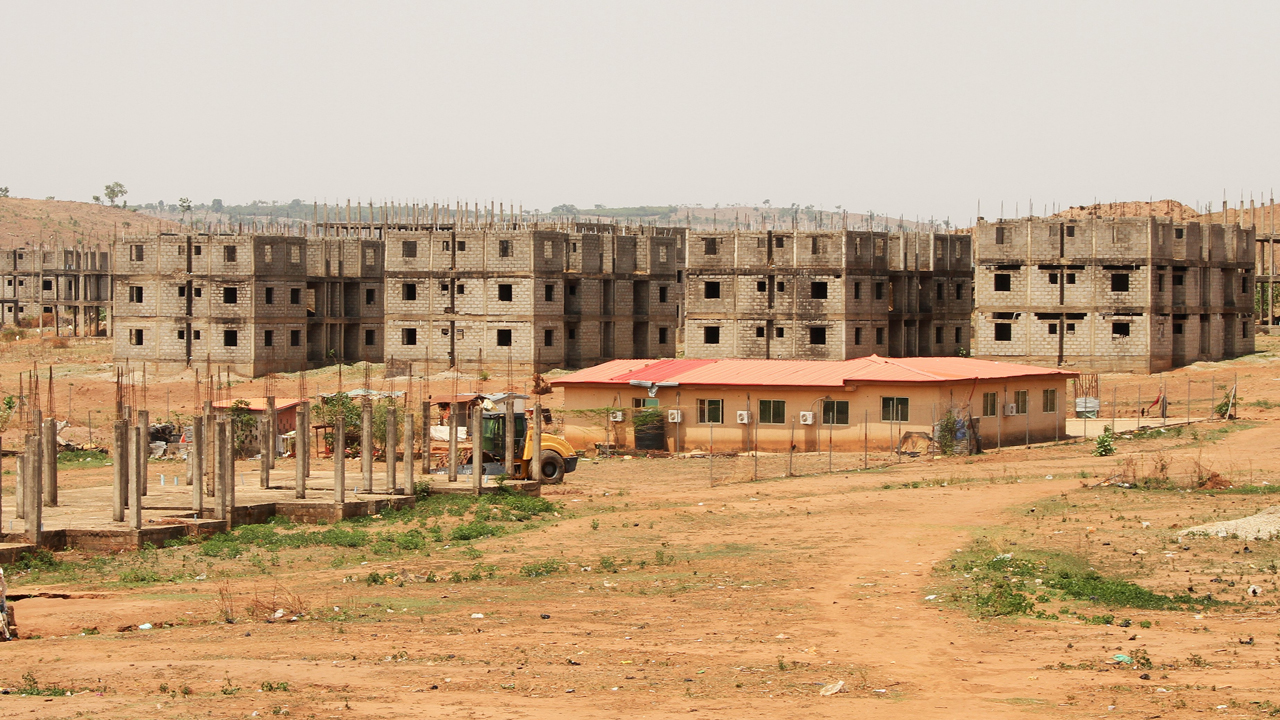
Stakeholders in the housing sector have advised federal, state and local governments to critically look into millions of abandoned or completed housing units in different locations in Abuja as well as other state capitals.
Minister of Housing and Urban Development, Ahmed Dangiwa, expressed concerns about the trend, stating that the most pressing data challenge will be addressed to accurately determine the extent of housing deficit the country has been grappling with.
Dangiwa noted that this has been a source of embarrassment as well as a hindrance to effective policy-making and strategic planning, stressing that it is time to change the narrative and take coordinated action to bring clarity and credibility to the deficit and state of housing in Nigeria.
He said, “We must work to establish accurate, credible, verifiable, and scientifically accurate data on housing stock and the living conditions of the homes that citizens live in countrywide. Policies and projects shaped by data are not only effective but also accountable to the people.”
The housing minister said that the federal government plans to construct 50,000 housing units across six geopolitical zones and Federal Capital Territory (FCT) with cities having 1,000 units per site in one location, while estates projects will have 250 homes per site in the remaining thirty states.
He said, “These are designed as integrated living communities targeting all income brackets comprising one-bedroom blocks of flats,two-bedroom blocks of flats and three-bedroom blocks of flats; two-, three-, and four-bedroom terraces, four-bedroom duplexes, and five-bedroom duplexes.”
Also speaking on the issue, Managing Director, Shelter Initiative Limited, Mrs. Morenike Babalola, said the housing deficit is a challenge to private and public sectors, adding, “still there is no authentic data for the demand and supply of houses in the country generally.”
Babalola said housing is one of the issues the federal government and private developers are still brainstorming, adding that affordability of houses is the main problem at present in the built sector.
He said,”We have introduced solar systems to homeowners as they move into their apartments in our estates in Abuja and other cities. This is at the owners’ cost, especially, the security of the estates, and maintenance of the technology should be taken into consideration.”
In his words, Nasir Isa Kwarra, National Population Commission described the move as a critical step and timely exercise. He also admitted that the housing shortfall or inadequacy in the supply of affordable and suitable homes to meet the needs of the citizens’ demands and stocktaking has been a major challenge of the government.
He posited that the next national census will provide the country with an invaluable opportunity to gather precise and comprehensive data on housing needs, while urging the government to design and implement survey instruments to address housing-related questions.
Mr. Ezekiel Ojo of Shelter Origins said the company’s resolve to deliver low-income houses has been hampered by hunger and hardship in the country, given the prices of cement, and unoccupied apartments in Abuja, and other cities.
“Generally, there is inflation in the country in the first half of 2024. Our currency has lost its value. Most of the building materials are imported. Those produced locally are equally affected by this trend. We are constructing homes, but people have no purchasing power,” Ojo remarked.
The report shows that the country’s real estate market is expected to hit $3.41 trillion in the next five years with a sharp decline in people’s purchasing power. The United Kingdom has about a 4 million house deficit and is planning to construct 1.4 million homes to reduce it.
It further said the increasing popularity of gated communities and luxury estates as a key trend in the Nigerian real estate market, offering enhanced security, modern amenities, and a higher standard of living, making them appealing to the growing middle class.
At the International Housing Show, it was revealed that FCTA has granted over 2,000 development permits to real estate developers for the construction of mass housing units.
Director of Control, Murthtar Galadima, stated that with the figure, they are still mindful of Original Master Plan in issuing the permits to developers, warning illegal land grabbers to desist from such practices.
Last year, Shelter Afrique and Real Estates Developers Association of Nigeria asked for buildable land to construct 6000 units in each geopolitical zone.
To stimulate supply and availability of affordable housing stock, Federal Mortgage Bank of Nigeria partnered with reputable property developers and deployed over N135.8 billion for the construction of over 16,684 affordable homes under the estate development.
It was equally gathered that people who relocated to Abuja in search of employment, business ventures and others, find it more difficult due to the high level of insurgency in the country.






